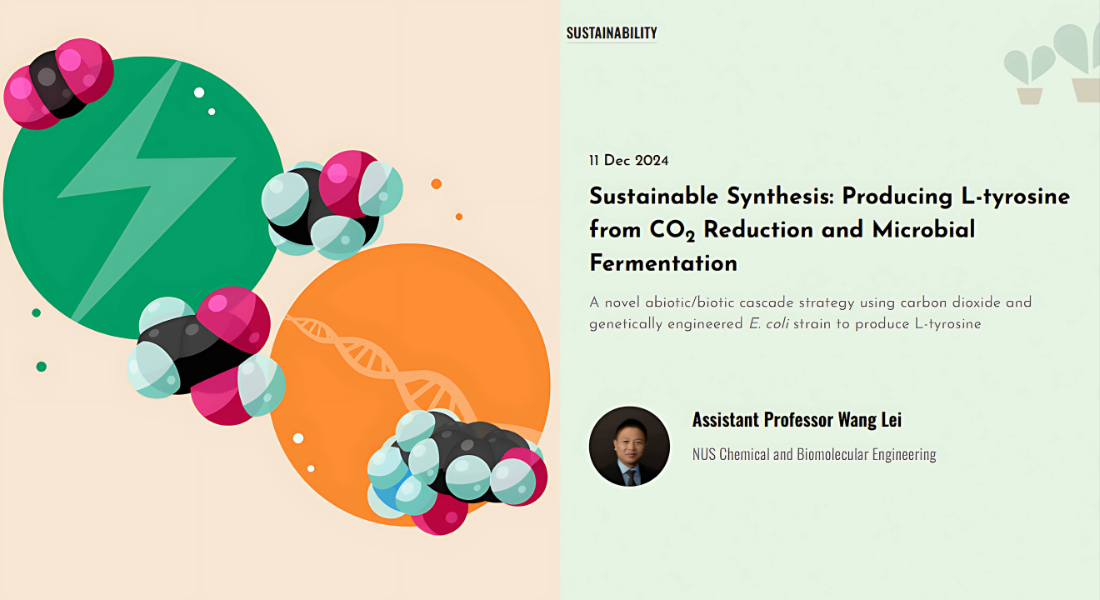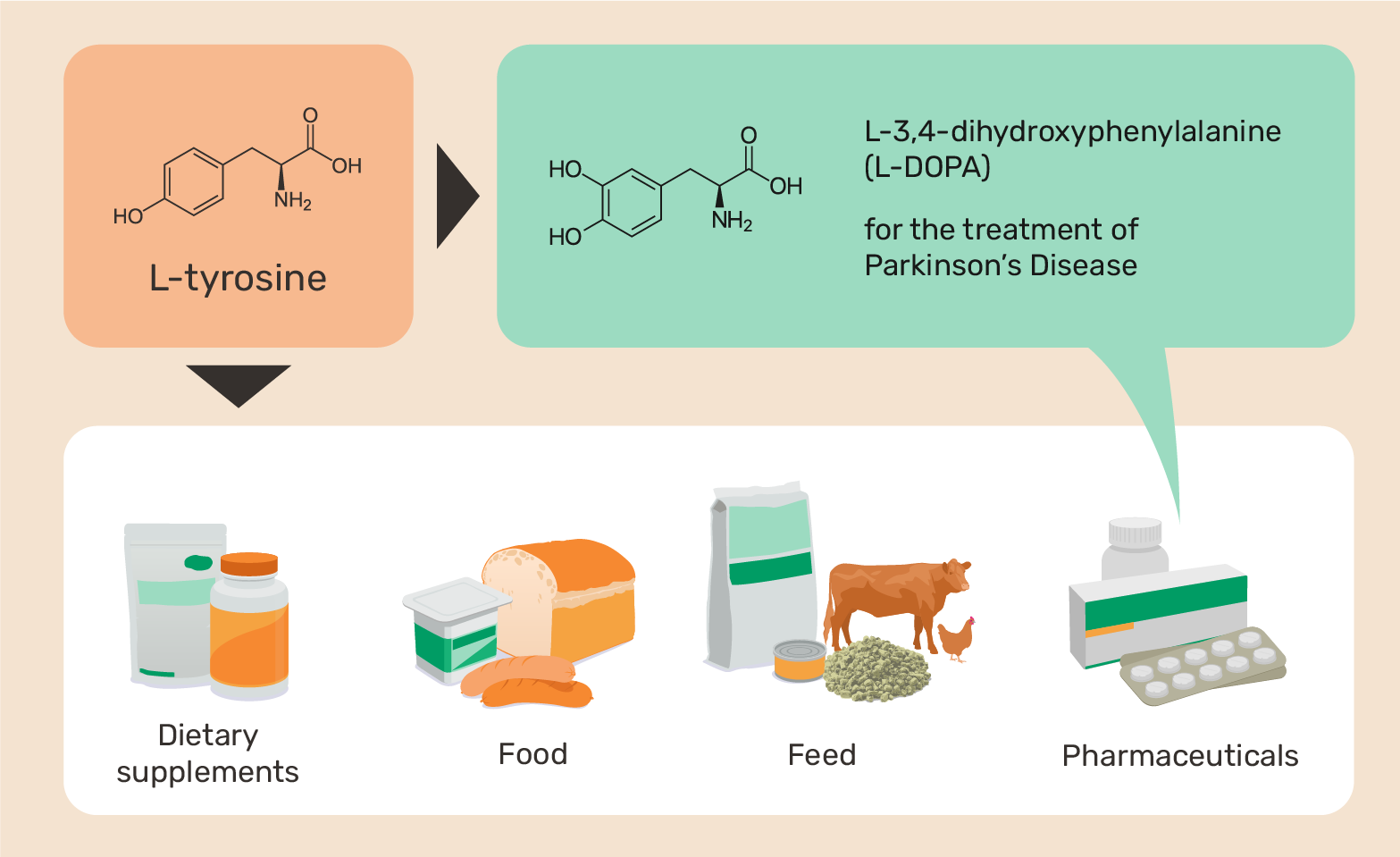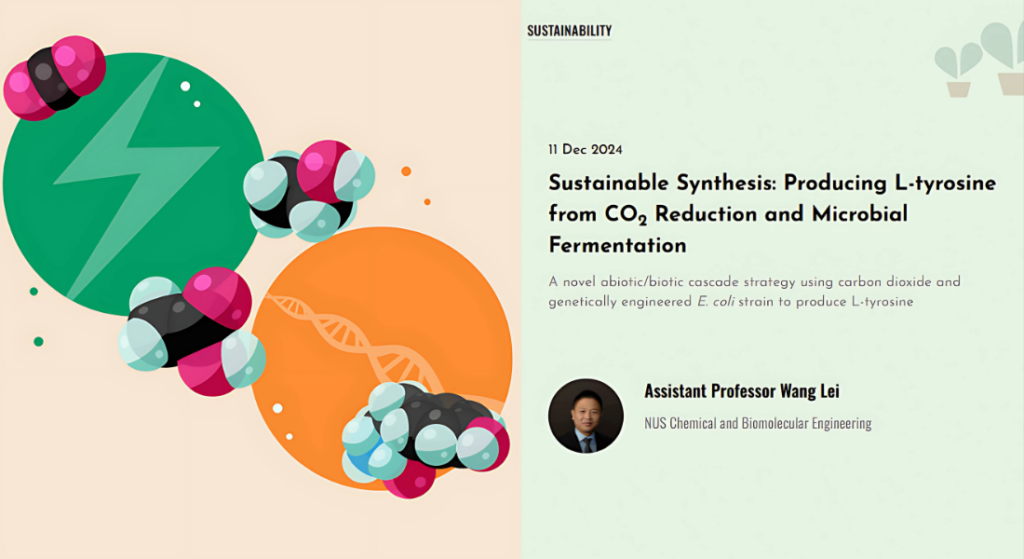
Today, over 34 billion tonnes of carbon dioxide (CO2) is emitted each year globally. While efforts to reduce the environmental burden of such emissions has focused on the development and adoption of alternative energy technologies, a growing body of work is turning to the development of technologies to capture and convert CO2 into carbon-based fuels and chemicals. The successful implementation of such technologies will not only provide a source of clean energy for our future energy needs, but also provide much needed mitigation strategies to combat growing carbon emissions.
Assistant Professor Wang Lei and his team has developed an abiotic/biotic cascade strategy involving CO2 as the main feedstock to produce L-tyrosine – a non-essential amino acid that plays a crucial role in protein synthesis, serving as a precursor for neurotransmitters and various bioactive compounds. It is widely used in the pharmaceutical, dietary supplement, as well as the food and feed industries.

Their research, (published in Science Advances), turns CO2 molecules into valuable products, offering promising pathways toward a cleaner, carbon-neutral future. While this study focused on L-tyrosine, the same principles could potentially be applied to the production of other valuable chemicals and amino acids, further expanding the scope of CO2 utilisation technologies.
Read more about Assistant Prof Wang Lei’s featured research here:
https://www.nus.edu.sg/research/research-features/wang-lei-sustainable-synthesis-producing-l-tyrosine-from-co2-reduction-and-microbial-fermentation


